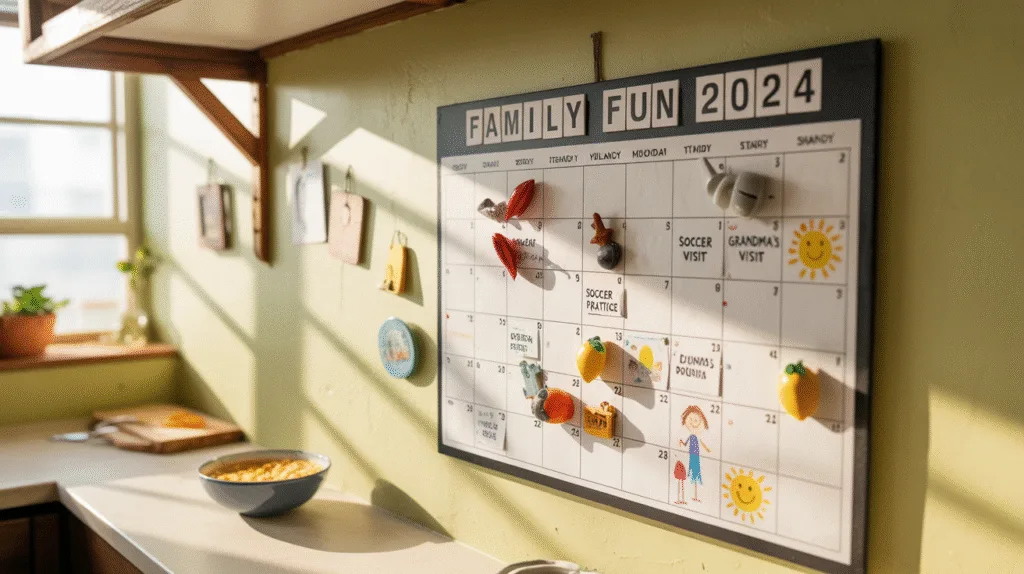
Being a parent often feels like running a marathon that never ends. From early morning wake-ups to late-night chores, there’s always something demanding your attention. Between work, childcare, household responsibilities, and the rare hope of personal time, it can seem like there simply aren’t enough hours in the day. This constant juggling act can leave even the most organized parent feeling overwhelmed and exhausted.
But while we can’t create more hours, we can take control of how we use them. Time management isn’t about doing everything—it’s about doing what matters most with the time you have. For parents who never seem to stop, adopting smarter time habits can be a game-changer. It means less stress, more presence with your children, and even some room to breathe.
This article will walk you through realistic, battle-tested strategies that help busy parents stay ahead without burning out. From embracing small pockets of time to building routines that serve the whole family, you’ll learn how to create a more balanced day—without needing superpowers.
Let’s explore practical, parent-approved tips that make every minute count.
For parents with nonstop schedules, finding a full uninterrupted hour can feel impossible. That’s why learning to embrace micro-moments—those brief pockets of time between tasks—can be a powerful shift in how you manage your day. These moments, often overlooked, are small windows of opportunity waiting to be used with intention.
A five-minute wait while dinner cooks? Perfect for replying to a quick email or setting your schedule for tomorrow. Ten minutes between school drop-off and your next appointment? That’s enough time for a guided meditation, a quick stretch, or even a couple of deep breaths in silence. By reframing how you see these slivers of time, you begin to reclaim control.
The key is to prepare in advance. Keep a short list of micro-tasks—things you can do in under 10 minutes. This could include organizing your to-do list, paying a bill online, or checking in with a friend. Having these ready removes the mental load of deciding what to do, which is half the battle.
These micro-moments aren’t just for productivity—they’re also for presence. Use them to connect with your child, enjoy a warm drink without distractions, or step outside and take in some sunlight. When used mindfully, even two minutes can reset your energy and mood.

One of the easiest ways to regain time in a packed schedule is by batching—grouping similar tasks together and tackling them in focused blocks. For busy parents, constantly switching between different types of tasks (like folding laundry, answering emails, and helping with homework) drains energy and increases mental clutter. Batching simplifies that chaos.
By organizing your to-dos into categories—like household chores, communication, planning, or errands—you reduce decision fatigue and stay in the same mental “mode” longer. This leads to faster completion and fewer mistakes.
Here are practical batching categories most parents can use:
Designate specific times for each batch. Maybe Tuesday mornings are for household tasks, while Friday afternoons are for planning the next week. Even 30-minute blocks can work wonders when you’re not constantly context-switching.
The beauty of batching is that it brings rhythm to your week. Instead of feeling like everything is urgent all the time, you start to trust the system—knowing that each task has its place and time.
If your household often feels like it’s operating in chaos, a shared family calendar can be a lifesaver. Having a clear, visual schedule helps everyone stay on the same page, reduces last-minute surprises, and creates more opportunities for intentional planning.
The key is to design a calendar that’s realistic, not idealistic. It should include not just appointments and school events, but also buffer time, downtime, and even meals. When all members of the family can see what’s happening and when, coordination becomes easier—and the mental load lighter.
Here’s an example of how a simple weekly layout might look:
| Day | Morning | Afternoon | Evening |
|---|---|---|---|
| Monday | School drop-off + work | Grocery run | Family dinner + homework |
| Tuesday | Gym + emails | Work meetings | Kids’ soccer practice |
| Wednesday | Meal prep | Dentist appointment | Quiet time + reading |
| Thursday | Work focus block | Parent-teacher call | Movie night |
| Friday | Errands | Schedule review | Takeout + game night |
Whether you use a whiteboard, a shared Google Calendar, or a physical planner on the fridge, make sure it’s visible, simple, and updated weekly. Include color codes for each family member if needed, and have a brief Sunday “sync-up” to plan ahead.
When your week is mapped out clearly, the pressure to “remember everything” fades—and you’ll spend less time reacting and more time enjoying the moments that matter.

Many parents fall into the trap of trying to do everything themselves—either because they feel responsible, or because they believe no one else can do it quite right. But the pursuit of perfection often leads to burnout. The truth is: you don’t have to do it all, and certainly not alone.
Delegating tasks, even small ones, can create breathing room. This could mean asking your partner to take over bedtime a few nights a week, teaching your kids to pack their own lunches, or hiring help when possible—even just once a month. Every little bit adds up.
The challenge for many isn’t logistics—it’s mindset. Letting go of control feels uncomfortable at first, especially if you’ve built your identity around being the one who “manages everything.” But delegation is not a failure—it’s a strength. It’s trusting others, empowering them, and giving yourself the grace to rest.
Here are a few ways to delegate effectively without guilt:
When you begin to delegate, you create more than time—you create mental space, reduce resentment, and model healthy boundaries for your children.
Busy parents often live in a cycle of exhaustion—trying to be everywhere, do everything, and care for everyone. But true time management isn’t about squeezing more into the day; it’s about choosing what matters and letting go of what doesn’t. When you shift from reacting to planning, from doing it all to doing what counts, life begins to feel less like a race and more like a rhythm.
By embracing micro-moments, batching your tasks, organizing your week visually, and learning to delegate with confidence, you gain something invaluable: breathing room. That space allows you to be more present with your children, more grounded in yourself, and more in control of your days.
Remember, your value as a parent isn’t measured by how busy you are, but by how you show up—with intention, with presence, and with love. You don’t need more hours in your day. You need to own the ones you already have.
You’ve got this. And every small step you take toward better time management is a step toward a more balanced, joyful life.